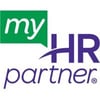An A to Z Guide to Benefits Administration

Benefits administration, with its acronyms and moving parts, can feel a bit like alphabet soup! Its complexity is just one reason many organizations and businesses, from small to mid-sized, choose to outsource this high-stakes HR function.
Whether you opt to handle benefits administration in-house or entrust it to a vendor, though, there are fundamental words, phrases, and acronyms that every business should know. And so, without further ado:
- Broker – entity that specializes in creating health, retirement, disability, or other employee benefits packages suited to an employer’s workforce.
- Carrier – another name for insurance company, a carrier is an entity that provides insurance coverage – most often health insurance coverage like medical, dental, vision, life, and disability – to employees who opt-in.
- Compliance – to be in alignment with ever-changing benefits-related federal, state, and local laws.
- COBRA – short for the Consolidated Omnibus Budget Reconciliation Act of 1985,
COBRA is the federally mandated extension of employer-sponsored health insurance coverage that employees can elect to carry for a finite period after leaving a company (whether a departure was voluntary or involuntary). - Disability benefits – income replacement or financial assistance for employees unable to work due to illness, disease, or injury. Disability benefits can be provided through an employer’s group insurance and most often consist of short-term disability (STD) and long-term disability (LTD) options.
- Eligibility and enrollment tracking – the process of monitoring the point at which each company employee becomes eligible (or ineligible) for various benefits – and alerting and enrolling (or removing) them accordingly.
- Employee benefits communications – the critical discipline of notifying company employees – individually and collectively – about deadlines, options, costs, action items, and resources related to company-sponsored benefits. Some such notices are required by law.
- ERISA compliance – adherence to the Employee Retirement Income Security Act of 1974, which lays forth federal guidelines designed to protect employees of private sector companies who participate in retirement and health insurance plans. Businesses that fail to comply are subject to penalties1.
- FMLA – short for the Family and Medical Leave Act, FMLA is a federal law requiring employers with 50 or more employees to allow employees up to 12 weeks of job-protected, unpaid leave for qualified medical and family reasons during any 12-month period.
- Full-service outsourced HR – full-service specialists, like myHR Partner, handle multiple functions of HR, including benefits administration, generally with industry-leading credentials and experience.
- Invoice reconciliation and review – the monthly process of reviewing carrier invoices and ensuring that charges are accurate. This includes verifying that newly eligible employees are reflected on invoices and that terminated employees have been removed.
- New hire enrollment – the process in which employees starting with a company become eligible for and enroll in company benefits2. New employees may become eligible for health insurance benefits anytime between day 1 and day 91 of employment, depending on company policy. For administrators, this responsibility includes providing the new hire with necessary communication and conducting benefit overview/orientation sessions.
- Open enrollment period – sometimes abbreviated OE and occasionally called “annual enrollment,” the period – usually once a year – when public and private sector employees can make changes to their elected benefits options without a qualifying life event.
- Outsourced HR – the act of putting your organization’s benefits administration and other HR services in the hands of a third-party vendor, whether an outsourced full-service HR provider or PEO.
- Paid time off – an employer-provided benefit in which an employer compensates employees during their absence from work,3 whether for sick time, vacation, or personal obligations. Often abbreviated PTO and sometimes called personal time off, the phrase ”vacation time” often – but not always – refers to paid time off.
- PEO – short for professional employer organizations, PEOs can handle some but not all aspects of benefits administration. PEOs become co-employer of your employees, literally bringing your people onto their payroll. PEOs offer more limited customization than a full-service outsourced HR vendor.
- Retirement plan administration – the act of making sure company-sponsored retirement plans – including IRA, 401(k), and 403(b) plans – are compliant and properly executed, and that related deadlines and action items are relayed to employees. Key tasks include eligibility and enrollment tracking, annual Form 5500 filing, and distribution of required plan notices.
- Termination – the end of an employee's tenure with a company, whether voluntary (when a worker leaves of their own accord) or involuntary (the result of downsizing, layoffs, or firing). Termination necessitates COBRA and other benefits-related communication and tasks.
- Vendor monitoring and sourcing – the process of selecting and overseeing HR vendors (in benefits administration, these can be outsourced HR, carriers, brokers, and/or PEOs).
- Qualifying life event – a change in employee circumstances (most commonly marriage or divorce, birth or adoption, or losing health coverage elsewhere) that opens up eligibility for a Special Enrollment Period, a designated time window outside of open enrollment in which health insurance plan enrollment or changes are allowed for a particular employee and their dependents.
Knowledge is power, and every business is wise to understand the essential benefits administration terms above. However, if you prefer to hand the lion’s share of this complex specialty to experts, consider HR benefits administration outsourcing with myHR Partner.
myHR Partner’s time-proven outsourced benefits administration doesn’t just relieve your business of labor-intensive processes and responsibilities; it ensures your employees’ benefits are managed with professionalism and accuracy, which can positively impact employee morale (and related matters such as retention and performance).
Reach out today for a free myHR Partner consultation.
[1] https://www.investopedia.com/articles/personal-finance/081616/are-you-erisa-compliant-follow-checklist.asp
[2] https://www.indeed.com/hire/c/info/benefits-enrollment
[3] https://www.indeed.com/career-advice/career-development/paid-time-off
Topics discussed
ABOUT THE AUTHOR

myHR Partner Team
myHR Partner provides outsourced HR services for established small and mid-sized businesses throughout the United States. With more than 24 years of experience, our Client Services team delivers both strategic and hands-on HR support, tailored to each organization’s needs. Every member of our customer service team has a formal HR education and practical experience managing compliance, employee relations, and people operations across diverse business environments.
Related Posts
